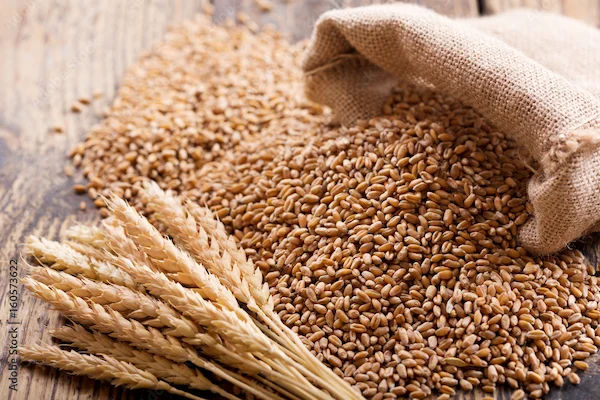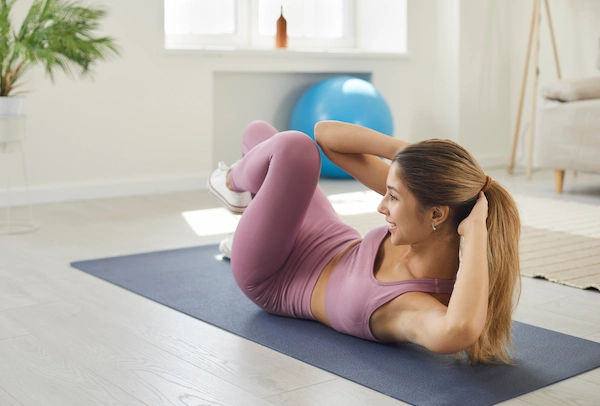Guide to Benefits Of Morning Walk
Discover the life-changing benefits of a morning walk. Learn how daily walking improves heart health, boosts mood, aids weight loss, and enhances overall well-being.

Written by Dr. Shaik Abdul Kalam
Reviewed by Dr. Dhankecha Mayank Dineshbhai MBBS
Last updated on 13th Jan, 2026

Introduction: Why Your Morning Walk is More Than Just Exercise
Imagine starting your day not with the jarring sound of an alarm, but with a gentle ritual that sets a positive tone for the next 16 hours. This is the power of a morning walk. Far from being a mundane activity, a daily morning stroll is a cornerstone habit—a small, consistent action that triggers a cascade of other positive behaviors and benefits. It’s a time for you to connect with your thoughts, energise your body with fresh air and sunlight, and proactively invest in your long-term health. Whether you're looking to shed a few pounds, calm a restless mind, or simply find a moment of peace before the day's chaos begins, lacing up your shoes and stepping outside might be the simplest yet most effective prescription available. This guide will delve deep into the science and soul of the morning walk, exploring its profound impact on your physical health, mental well-being, and overall quality of life, and provide you with a practical blueprint to make it a rewarding part of your routine.
The Physical Powerhouse: How a Morning Walk Transforms Your Body
A morning walk is a full-body tune-up. It’s a low-impact, accessible form of exercise that delivers a powerful punch of health benefits, making it an ideal activity for people of all ages and fitness levels.
Supercharges Your Heart and Cardiovascular System
Your heart is a muscle, and a morning walk is its favorite workout. Engaging in a brisk walking routine strengthens the heart, improving its efficiency in pumping blood throughout the body. This consistent activity helps lower resting heart rate, reduces blood pressure, and decreases levels of LDL (bad) cholesterol while increasing HDL (good) cholesterol. The American Heart Association recommends at least 150 minutes of moderate-intensity exercise, like brisk walking, per week to significantly reduce the risk of heart disease and stroke. A morning walk is a perfect way to accumulate these minutes.
A Natural Catalyst for Weight Management and Metabolism
Walking may seem gentle, but it’s a formidable tool for weight management. A 30-minute brisk walk can burn anywhere between 150-200 calories. More importantly, it kickstarts your metabolism for the day, a phenomenon sometimes called afterburn—where your body continues to burn calories at a slightly elevated rate even after you’ve finished exercising. Furthermore, a morning walk can help regulate appetite hormones, reducing cravings and helping you make healthier food choices throughout the day.
Regulates Blood Sugar and Fights Diabetes
For those managing or looking to prevent type 2 diabetes, a morning walk is particularly potent. Physical activity helps your muscles use blood glucose (sugar) for energy, which naturally lowers blood sugar levels. A post-meal walk is often recommended, but a morning walk, especially before breakfast, can help improve insulin sensitivity throughout the day. This makes it an excellent morning walk routine for diabetes management and prevention.
Strengthens Bones and Muscles
Walking is a weight-bearing exercise. This means your bones and muscles work against gravity, which helps increase bone density and reduces the risk of osteoporosis. It also tones the muscles in your legs, core, and even your upper body if you pump your arms. This contributes to better balance, coordination, and functional strength as you age.
Boosts Immunity: Your Daily Shield Against Illness
This is a less-discussed but incredible benefit. Moderate, regular exercise like walking has been shown to give your immune system a boost. It can promote the circulation of immune cells, helping your body better patrol for and fight off pathogens like the common cold and flu. Think of your morning walk as putting on a suit of armor for the day ahead.
Consult a Specialist for Personalised Advice
The Mental Oasis: Boosting Your Mind and Mood at Dawn
The benefits of a morning walk aren’t confined to the physical; they are profoundly mental and emotional. It’s a moving meditation that can reset your entire psychological state.
Reduces Stress and Anxiety Naturally
Stepping outside into the quiet of the morning, especially in a natural setting like a park, can dramatically lower cortisol levels, your body's primary stress hormone. The rhythmic, repetitive motion of walking has a calming effect on the nervous system, similar to practices like Tai Chi. This combination of gentle movement, fresh air, and a break from digital screens provides a powerful antidote to the anxiety of modern life. If you find your stress levels are consistently high and impacting your daily life, incorporating a walk is a great start. For persistent anxiety, consider speaking with a mental health professional. Apollo24|7 offers convenient online consultations with therapists and psychologists who can provide guidance and support.
Enhances Creativity and Cognitive Function
Struggling with a mental block? Go for a walk. Studies have shown that walking, particularly outdoors, can spark creativity and improve problem-solving abilities by up to 60%. The increased blood flow to the brain delivers oxygen and nutrients, sharpening your focus, memory, and overall cognitive function. This makes a morning walk the perfect primer for a productive work or creative day.
The Ritual of Success: Building Discipline and Better Sleep
Synchronises Your Body's Internal Clock (Circadian Rhythm)
Exposure to natural morning sunlight is crucial for regulating your circadian rhythm. The bright light signals to your brain that it’s time to be awake and alert, suppressing the sleep hormone melatonin. This simple act helps solidify your sleep-wake cycle, making it easier to wake up feeling refreshed in the morning and, crucially, making you tired at the right time in the evening. This leads to deeper, more restorative sleep.
Establishes a Foundation for Daily Discipline
The act of committing to and executing a morning walk builds self-efficacy—the belief in your own ability to complete tasks and achieve goals. This small win first thing in the morning sets a productive and disciplined tone, making you more likely to make healthy choices and tackle challenges throughout the rest of your day. It’s a keystone habit that builds resilience and willpower.
Your Practical Guide to the Perfect Morning Walk
How Long Should You Walk? Finding Your Sweet Spot
For general health, aim for 30 minutes. If you're a beginner, start with 15-20 minutes and gradually increase. The key is consistency, not intensity, at first. The CDC recommends 150 minutes of moderate-intensity activity per week, which breaks down perfectly into five 30-minute walks.
Pace and Technique: Making Every Step Count
Aim for a brisk walking pace where you can still talk but not sing. Focus on good posture: head up, shoulders back and relaxed, and core slightly engaged. Swing your arms naturally with a slight bend at the elbow, and take rolling steps from heel to toe.
What to Wear: Gear Up for Comfort and Safety
You don’t need fancy gear. The most important investment is a pair of supportive, comfortable shoes. Wear moisture-wicking clothing appropriate for the weather. In low-light conditions, wear reflective gear or a light-colored jacket. Don’t forget sunscreen, even on cloudy days!
Overcoming Common Hurdles: Staying Consistent
The biggest challenge isn't starting; it's continuing. Lay out your clothes the night before. Find a walking buddy for accountability. If you miss a day, don't be hard on yourself—just get back on track the next day. Remember your "why" and focus on the feeling of accomplishment you get after finishing.
Conclusion
A morning walk is a humble yet profoundly powerful tool. It requires no special equipment, no monthly fees, and is adaptable to almost any fitness level. The compounding benefits—a stronger heart, a sharper mind, a calmer spirit, and a more disciplined life—are undeniable. It’s a daily investment in your most valuable asset: your health. So tomorrow morning, instead of hitting snooze, consider lacing up your shoes and taking that first step. Your body and mind will thank you for the rest of the day, and for years to come. What are you waiting for? Your path to a healthier life is right outside your door.
Consult a Specialist for Personalised Advice
Consult a Specialist for Personalised Advice

Dr. Syed Ismail Ali
General Practitioner
7 Years • MBBS
Hyderabad
Apollo 24|7 Clinic, Hyderabad

Dr. Debajyoti Goswami
Obstetrician and Gynaecologist
10 Years • MBBS,D.G.O(DNB),Adv. Infertility Tech.(AIIMS),Fellowship in Diabetes(U.K),Comprehensive Abortion Care(Govt. Of W.B), Certificate in Clinical Embryology(AIIMS, BHUBANESWAR)
Bankura
D.G Clinic, Bankura
(25+ Patients)

Dr. Anand Ravi
General Physician
2 Years • MBBS
Bengaluru
PRESTIGE SHANTHINIKETAN - SOCIETY CLINIC, Bengaluru

Dr. Vivek D
General Physician
4 Years • MBBS
Bengaluru
PRESTIGE SHANTHINIKETAN - SOCIETY CLINIC, Bengaluru

Dr Syed Mateen Pasha
General Physician
2 Years • MBBS
Bengaluru
PRESTIGE SHANTHINIKETAN - SOCIETY CLINIC, Bengaluru




